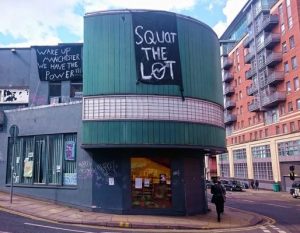 The government’s U-turn on evictions is merely a temporary reprieve — and today Freedom is publishing this newly updated Advisory Service for Squatters guide, which will only get more relevant as the year wears on.
The government’s U-turn on evictions is merely a temporary reprieve — and today Freedom is publishing this newly updated Advisory Service for Squatters guide, which will only get more relevant as the year wears on.
Squatting means occupying empty buildings, or land, without permission. Normally, it means homeless people finding somewhere to live, for a while at least, but what people do with the space they occupy is up to them. The following is a very basic guide. For more information or if you have any problems contact the Advisory Service for Squatters (ASS).
Non-residential squatting is still legal
Squatting in non-residential buildings, or where there has been an agreement, is still a civil matter. To resolve it the owner has to take you to court. The owners have legal ways and procedures to have squatters evicted and cannot legally use force or threats. Section 6 of the Criminal Law Act 1977 makes it an offence to force entry to a building which is occupied, and this includes squats. This will no longer help against the police if they are enforcing the new law against squatters in residential properties, but is otherwise still valid. This is explained in the Legal Warnings, which squatters have either on display or ready to show people. [Read More]










